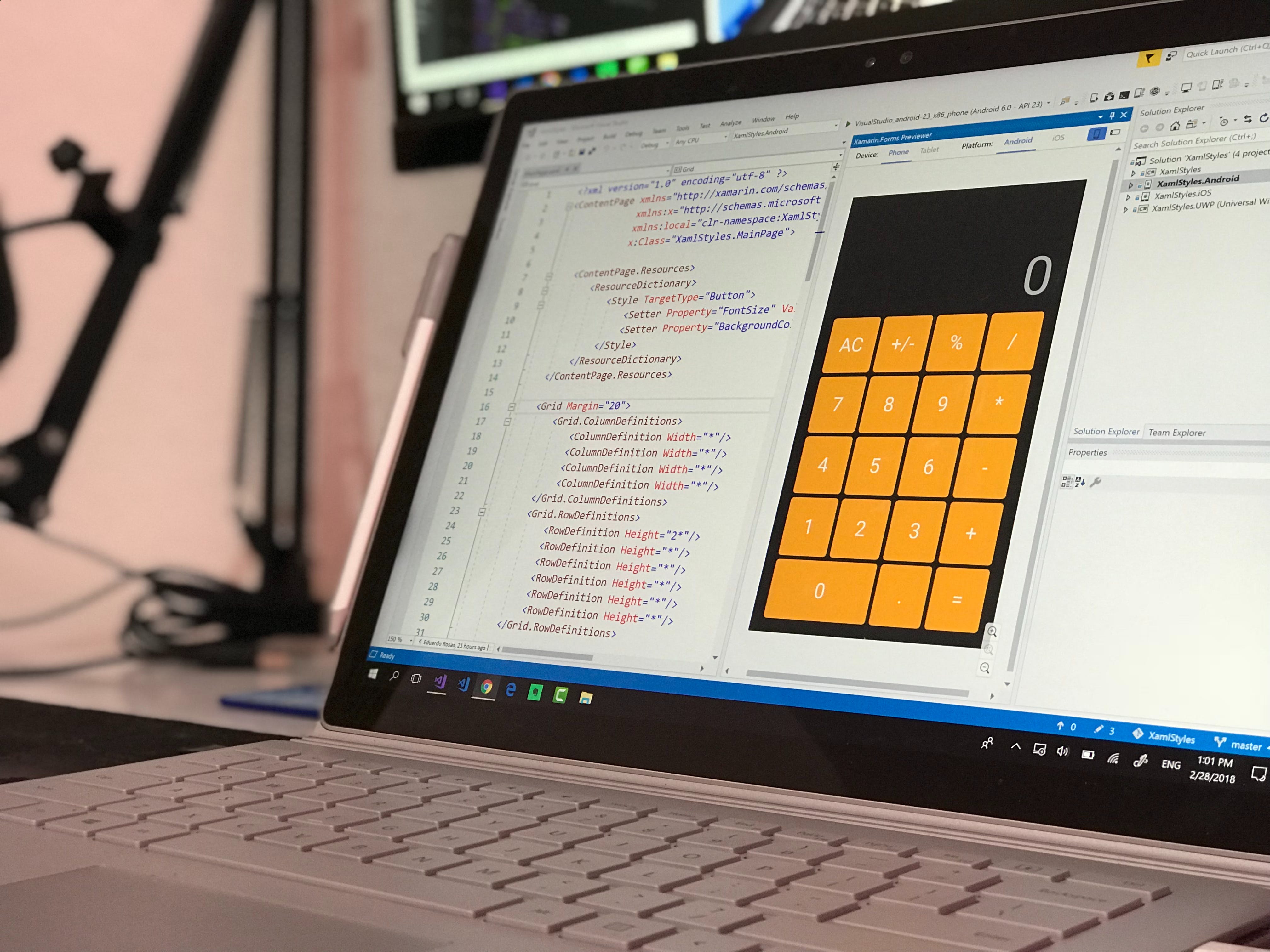Essential Mobile App Dev Frameworks & Tools for 2023

The realm of mobile application development is continuously evolving, with technological advancements redefining the way we perceive and interact with mobile apps. Mobile application development frameworks and tools are the cornerstone of this dynamic environment, providing developers with the necessary infrastructure to create innovative and responsive applications. As we delve into 2023, it is crucial to understand the significance of these frameworks and tools in shaping the mobile app landscape.
Frameworks offer a structured foundation, enabling developers to build applications with greater efficiency and reliability. They encapsulate complex functionalities into simpler interfaces, making the app development process more accessible and manageable. Tools, on the other hand, are instrumental in refining the development workflow, offering capabilities such as debugging, version control, and collaboration, which are essential for delivering high-quality applications. The selection of the right mobile application development framework and tools can immensely influence the success of a project, impacting factors like development time, resource allocation, and ultimately, user satisfaction.
As we explore the essential mobile app development frameworks and tools for 2023, we invite you to stay ahead of the curve by partnering with Biz4Solutions, where our expertise in cutting-edge technology paves the way for your business’s digital transformation and growth.
Navigating the Landscape of App Development Tools
Navigating the vast landscape of app development tools is akin to charting a course through a labyrinth of innovation. Each tool brings its own set of features, designed to tackle specific challenges faced during the app creation process. From Integrated Development Environments (IDEs) that provide comprehensive facilities for software development, to cross-platform tools that enable a single codebase to run on multiple operating systems, developers are equipped with an arsenal to enhance productivity and reduce time-to-market.
With the multitude of available options, it is essential to select tools that align with the project’s objectives and the team’s expertise. Tools such as Xcode and Android Studio stand out for native app development, offering specialized features tailored for iOS and Android platforms, respectively. Meanwhile, cross-platform frameworks like React Native and Flutter have gained popularity for their ability to deliver a near-native user experience across both platforms with a single codebase.
Additionally, developers can leverage project management and collaboration tools to maintain a cohesive development process. Platforms like Git for version control, Jira for project tracking, and Slack for team communication are indispensable in managing complex projects. They ensure that teams can work harmoniously, addressing bugs, and iterating on features seamlessly to meet project deadlines and stakeholder expectations.
Top Frameworks Revolutionizing Mobile App Development

The arena of mobile application development framework and tools is constantly evolving, with innovative frameworks revolutionizing the way developers construct applications. As we delve into 2023, certain frameworks have risen to prominence, distinguishing themselves through exceptional functionality and adaptability to the latest technological trends.
Flutter, Google’s UI toolkit, has become a game-changer for building natively compiled applications for mobile, web, and desktop from a single codebase. Its hot reload feature, combined with a rich set of fully-customizable widgets, facilitates a dynamic development process and expressive UI creation.
React Native, introduced by Facebook, is another heavyweight in the mobile app development landscape. It enables developers to build mobile apps using JavaScript and React, allowing for shared code across platforms while still delivering a high-quality user experience akin to native apps.
For developers prioritizing performance and efficiency, Xamarin offers robust cross-platform app development opportunities. It leverages C# and .NET to build apps that can run on multiple platforms while sharing most of the codebase, significantly reducing development time and resources.
Each framework has its strengths, and the choice of the right mobile application development framework and tools depends on various factors including project requirements, team expertise, and the desired balance between speed and performance. Developers must weigh these considerations carefully to harness the full potential of these top frameworks in their mobile app development endeavors.
Essential Tools for Streamlining App Creation

In conjunction with robust frameworks, an array of essential tools plays a pivotal role in streamlining the app creation process. These tools not only enhance efficiency but also ensure that the development cycle is smoother and more manageable. Among the plethora of options available, certain tools have established themselves as indispensable for developers venturing into mobile application development framework and tools.
Integrated Development Environments (IDEs) like Android Studio and Xcode provide comprehensive facilities for app development, including a source code editor, debugger, and automation tools. They are fundamental for developers to write, test, and debug their code efficiently.
Version Control Systems such as Git are crucial for maintaining different versions of the codebase, enabling multiple developers to collaborate without conflicts, and ensuring that any iterations can be tracked and managed with ease.
UI/UX Design Tools, including Sketch and Figma, allow designers to create the visual elements of an app with precision. These tools support collaborative design workflows and ensure that the user interface aligns seamlessly with the user experience.
Furthermore, Testing and Debugging Tools like Appium and Selenium are imperative for ensuring the app operates as intended across different devices and operating systems. They automate the testing process, identifying bugs and performance issues that need to be addressed before the app reaches the end-user.
The integration of these tools into the mobile app development process can significantly reduce development time, enhance collaboration among team members, and ultimately lead to the creation of a high-quality mobile application. Selecting the right combination of tools is as crucial as choosing the appropriate framework, as it can greatly impact the success and efficiency of the project.
Comparing Cross-Platform vs Native App Frameworks

The choice between cross-platform and native app frameworks is a significant decision in mobile application development that hinges on various factors such as target audience, performance requirements, and budget constraints. Cross-platform app frameworks like React Native, Flutter, and Xamarin allow developers to write code once and deploy it across multiple platforms, such as iOS and Android. This approach can lead to considerable time and cost savings, making it an attractive option for projects with limited resources or those that aim to reach the widest possible audience quickly.
However, cross-platform frameworks may sometimes lag in performance and integration with native device features compared to native app frameworks. Native development, using tools like Swift for iOS and Kotlin or Java for Android, offers the advantage of optimized performance and better access to device-specific functionalities. Native apps tend to have a more fluid and responsive user experience, which can be crucial for applications that require intensive graphics or real-time data processing.
Moreover, native development allows for a higher degree of customization and adherence to the specific design guidelines of each platform, which can lead to a more intuitive user experience. On the downside, native app development typically requires more time and resources, as separate codebases must be maintained for each platform.
In summary, the choice between cross-platform and native frameworks should be made after carefully considering the unique needs of the project. While cross-platform development can provide a faster route to market and cost savings, native development stands out when performance, user experience, and full utilization of device capabilities are the top priorities.
Future-Proofing with Sustainable App Development Tools

As technology evolves, it becomes increasingly important for businesses to adopt a forward-thinking approach to mobile application development. Future-proofing is about selecting app development frameworks and tools that not only meet current needs but also have the capacity to adapt to future technological advances and market demands. Sustainable app development tools ensure that applications remain relevant, functional, and competitive over time, thereby protecting the investment made in their creation.
Frameworks that offer regular updates, strong community support, and a roadmap for incorporating new technologies are essential for sustainable app development. Tools like Flutter and React Native are known for their robust ecosystems and frequent updates, which help developers keep up with the latest trends like augmented reality and machine learning integration. Additionally, choosing tools that are backed by major tech companies—such as Google’s Flutter or Facebook’s React Native—can provide an extra layer of assurance regarding their longevity and support.
Are You Interested in Building a Top-Class Website or Mobile App?
It’s also critical to consider the environmental impact of app development. Efficient code, green hosting solutions, and the use of cloud services can all contribute to a more sustainable tech footprint. By focusing on these areas, developers can reduce the energy consumption of their apps and contribute to a greener future.
At Biz4Solutions, we specialize in utilizing advanced and sustainable mobile application development frameworks and tools to create high-quality, future-ready apps. Our commitment to innovation ensures that our clients stay ahead of the curve. Contact us to learn how we can assist in building a sustainable and future-proof mobile app for your business.




